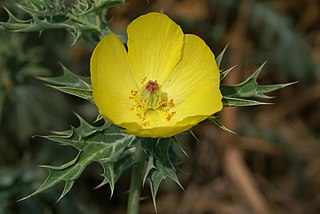Related Research Articles

Melamine is an organic compound with the formula C3H6N6. This white solid is a trimer of cyanamide, with a 1,3,5-triazine skeleton. Like cyanamide, it contains 67% nitrogen by mass, and its derivatives have fire retardant properties due to its release of nitrogen gas when burned or charred. Melamine can be combined with formaldehyde and other agents to produce melamine resins. Such resins are characteristically durable thermosetting plastic used in high pressure decorative laminates such as Formica, melamine dinnerware, laminate flooring, and dry erase boards. Melamine foam is used as insulation, soundproofing material and in polymeric cleaning products, such as Magic Eraser.

Basmati, pronounced ['bɑːsmət̪iː], is a variety of long, slender-grained aromatic rice which is traditionally grown in India, Pakistan, and Nepal. As of 2019, India accounted for 65% of the international trade in basmati rice, while Pakistan accounted for the remaining 35%. Many countries use domestically grown basmati rice crops; however, basmati is geographically exclusive to certain districts of India and Pakistan.
An adulterant is caused by the act of adulteration, a practice of secretly mixing a substance with another. Typical substances that are adulterated include but are not limited to food, cosmetics, pharmaceuticals, fuel, or other chemicals, that compromise the safety or effectiveness of the said substance.

Argemone mexicana is a species of poppy found in Mexico and now widely naturalized in many parts of the world. An extremely hardy pioneer plant, it is tolerant of drought and poor soil, often being the only cover on new road cuttings or verges. It has bright yellow latex. It is poisonous to grazing animals, and it is rarely eaten, but it has been used medicinally by many peoples, including those in its native area, as well as the Natives of the western US, parts of Mexico and many parts of India. In India, during the colorful festival Holika Dahan, adults and children worship by offering flowers, and this species is in its maximum flowering phase during March when the Holi festival is celebrated. It is also referred to as "kateli ka phool” in India.
A cutting agent is a chemical used to "cut" recreational drugs with something less expensive than the drug itself.
Lacing or cutting, are drug slangs for the act of using a substance to adulterate substances independent of the reason. The resulting substance are refereed by the slang terms laced or cut.

The Prescription Drug Marketing Act (PDMA) of 1987 is a law of the United States federal government. It establishes legal safeguards for prescription drug distribution to ensure safe and effective pharmaceuticals and is designed to discourage the sale of counterfeit, adulterated, misbranded, sub potent, and expired prescription drugs. It was passed in response to the development of a wholesale sub-market for prescription drugs.
United States v. Forty Barrels and Twenty Kegs of Coca-Cola, 241 U.S. 265 (1916), was a federal suit under which the government unsuccessfully attempted to force The Coca-Cola Company to remove caffeine from its product.
Isocitric acid is a structural isomer of citric acid. Since citric acid and isocitric acid are structural isomers, they share similar physical and chemical properties. Due to these similar properties, it is difficult to separate the isomers. Salts and esters of isocitric acid are known as isocitrates. The isocitrate anion is a substrate of the citric acid cycle. Isocitrate is formed from citrate with the help of the enzyme aconitase, and is acted upon by isocitrate dehydrogenase.

Olive oil regulation and adulteration are complex issues overseen and studied by various governmental bodies, non-governmental organizations, and private researchers across the world.

Bread was central to the formation of early human societies. From the Fertile Crescent, where wheat was domesticated, cultivation spread north and west, to Europe and North Africa, and east towards East Asia. This in turn led to the formation of towns, as opposed to the nomadic lifestyle and gave rise to more and more sophisticated forms of societal organization. Similar developments occurred in the Americas with maize and in Asia with rice.

The regulation of food and dietary supplements by the U.S. Food and Drug Administration is a process governed by various statutes enacted by the United States Congress and interpreted by the U.S. Food and Drug Administration ("FDA"). Pursuant to the Federal Food, Drug, and Cosmetic Act and accompanying legislation, the FDA has authority to oversee the quality of substances sold as food in the United States, and to monitor claims made in the labeling about both the composition and the health benefits of foods.
Adulteration is a legal offence and when the food fails to meet the legal standards set by the government, it is said to have been Adulterated Food. One form of adulteration is an addition of another substance to a food item in order to increase the quantity of the food item in raw form or prepared form, which results in the loss of actual quality of food item. These substances may be either available food items or non-food items. Among meat and meat products some of the items used to adulterate are water or ice, carcasses, or carcasses of animals other than the animal meant to be consumed. In the case of seafood, adulteration may refer to species substitution (mislabeling), which replaces the species identified on the product label with another species, or undisclosed processing methods, in which treatments such as additives, excessive glazing, or short-weighting are not disclosed to the consumer.
The 1985 diethylene glycol wine scandal was an incident in which several Austrian wineries illegally adulterated their wines using the toxic substance diethylene glycol to make the wines appear sweeter and more full-bodied in the style of late harvest wines. Many of these Austrian wines were exported to West Germany, some of them in bulk to be bottled at large-scale West German bottling facilities. At these facilities, some Austrian wines were illegally blended into German wines by the importers, resulting in diethylene glycol ending up in some bulk-bottled West German wines as well.
In 1998, adulterated mustard oil poisoning in Delhi resulted in widespread dropsy and deaths of 60 people and illness of more than 3000. It was revealed that white oil, a petroleum product was mixed with edible mustard oil. Sale of mustard in loose quantity was banned by a court order, to prevent more health hazards. In September 1998, the ban on packed mustard oil was removed after a Cabinet decision with a condition that the date of packing should be prominently displayed. Even though mustard oil is banned as an edible oil in countries like USA, Canada and EU due to its erucic acid content, the oil is widely used as an edible oil in North India, Pakistan and Nepal.

The swill milk scandal was a major adulterated food scandal in New York in the 1850s. The New York Times reported an estimate that in one year 8,000 infants died from swill milk.

Velaikkaran (transl. Worker) is a 2017 Indian Tamil-language action drama film written and directed by Mohan Raja. Produced by R. D. Raja under his banner 24AM Studios. The film stars Sivakarthikeyan, Fahadh Faasil, Nayanthara, Sneha and Prakash Raj in lead roles. Mahesh Manjrekar, Sathish, Thambi Ramaiah, RJ Balaji, Vijay Vasanth, Robo Shankar and Rohini play supporting roles. The film's music is composed by Anirudh Ravichander, with cinematography by Ramji. The film is based on a sales executive named Arivazhagan (Sivakarthikeyan) who fights against food adulteration committed by high-class companies.

Kashmiri Red Chilies or Kashmiri Laal Mirch are characterized by their ability to give a dark red colour to food, capable of colouring and adding flavour, while at the same time not allowing the food to become too pungent or spicy. India is the largest consumer and producer. Numerous companies sell the powdered form, including MDH, Everest Spices, Sakthi Masala and Badshah Masala. Vir Sanghvi writes that a majority of the restaurant industry in India use Kashmiri chillis or its powdered form. Chefs even use Kashmiri chillis as a substitute for dishes with Goan Peri-Peri masala.

Desmethylsibutramine (BTS-54354) is an active metabolite of the anorectic drug sibutramine. It is a more potent monoamine reuptake inhibitor than sibutramine and has been sold as an ingredient in weight loss products sold as dietary supplements, along with related compounds such as the N-ethyl and 3,4-dichloro derivatives.
References
- ↑ Bonnie, R.J. et al. Criminal Law, Second Edition. Foundation Press, New York, NY: 2004, p. 252